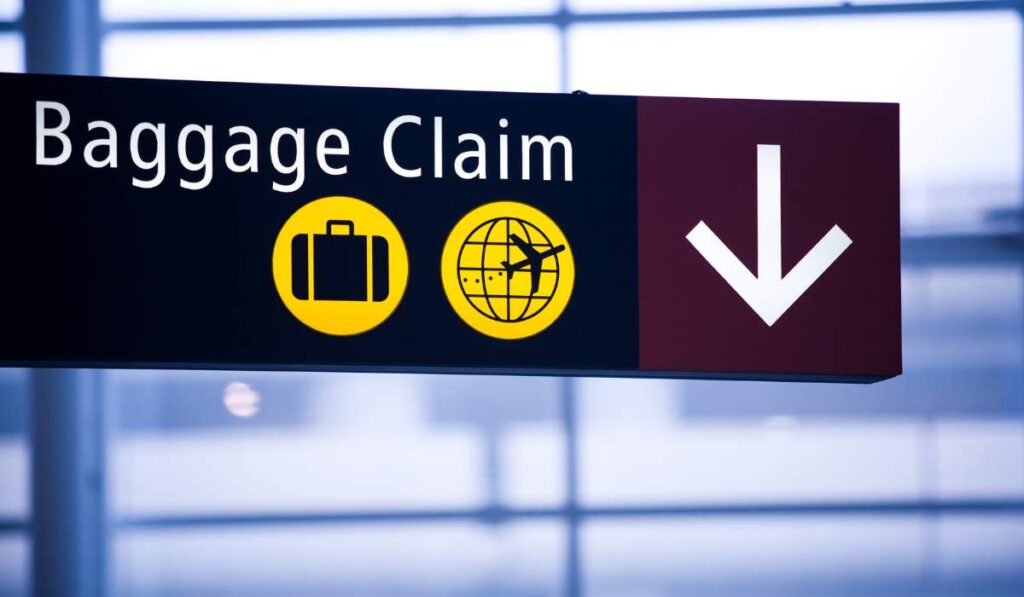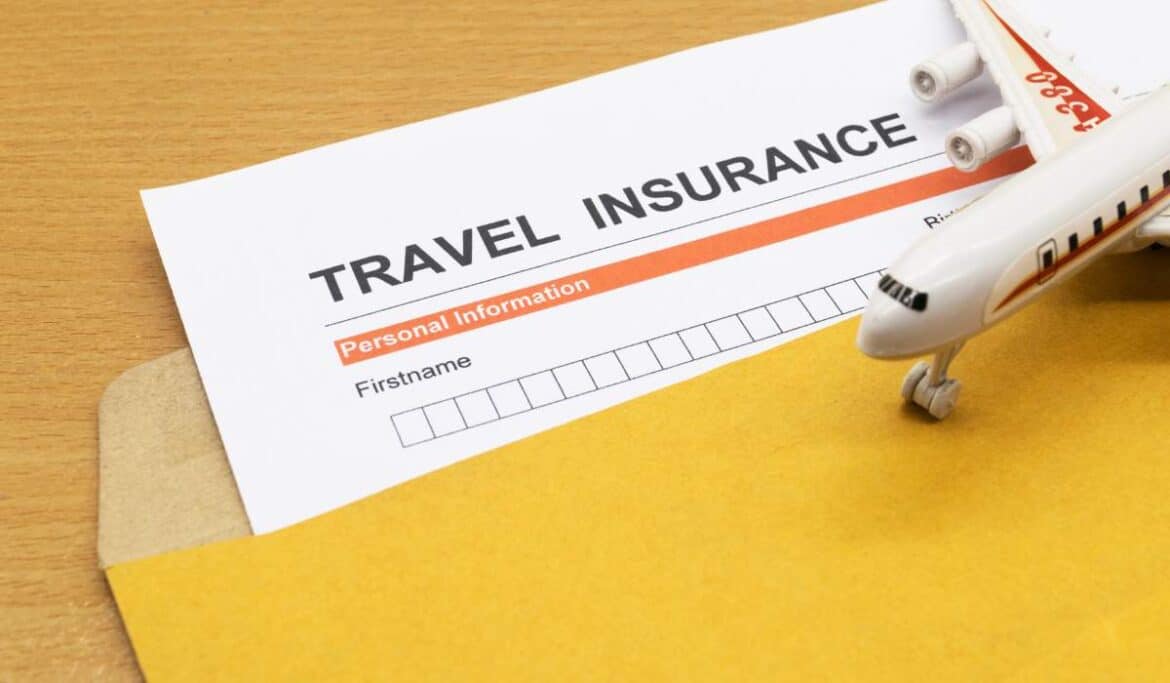Are you someone who always leaves things to the last minute? While it may work for some things, buying travel insurance shouldn’t be one of them. Purchasing last-minute travel insurance can come with a host of risks that you might not have considered.
Firstly, last-minute travel insurance may not cover unforeseen events that occur before the policy is purchased. This means if something unexpected happens and you haven’t yet booked your flights or business trip, you won’t be covered. The risk of cancellation due to unexpected events, such as a pandemic, increases with last-minute insurance purchases, potentially resulting in significant trip costs.
But why take these risks when buying travel protection insurance ahead of time can potentially save travel expenses and increase the chance of coverage for potential risks. By purchasing your policy in advance and using credit cards for booking, you give yourself more time to research and compare policies to find one that fits your needs and budget.
So how late can you buy travel insurance? While it varies by provider, most insurers allow travelers to purchase policies up until the day before their departure date. However, waiting until the last minute can limit your options and potentially leave you without adequate coverage.
The Importance of Purchasing Travel Insurance in Advance

What is travel insurance and what does it cover?
Travel insurance is a type of insurance that provides coverage for unexpected events that may occur during your travels. It can help protect you from financial losses due to trip cancellations, delays, interruptions, lost or stolen baggage, medical emergencies, and other unforeseen circumstances.
Most travel insurance policies cover the following:
- Trip cancellation or interruption
- Medical emergencies
- Evacuation and repatriation
- Lost, stolen, or damaged baggage and personal belongings
- Flight delays and cancellations
It’s important to note that coverage can vary depending on the policy and provider. Some policies may offer additional benefits such as rental car coverage or adventure sports coverage.
What are the different types of travel insurance policies available?
There are several coverage options of travel insurance policies available based on your specific needs, with coverage limits that vary depending on the person.
- Single-trip policy: This type of policy covers you for one specific trip.
- Multi-trip policy: This type of policy covers multiple trips within a specified time frame (usually one year).
- Group policy: This type of policy covers a group of people traveling together.
- Business travel policy: This type of policy provides additional benefits for business travelers such as coverage for work-related equipment.
- Adventure sports policy: This type of policy offers additional coverage for high-risk activities such as skiing or bungee jumping.
- Cruise-specific policy: This type of policy offers specialized coverage for cruise ship passengers.
What benefits can you get from a travel insurance plan?
A good travel insurance plan provides many benefits that can give you peace of mind while traveling. Here are some examples:
- Trip cancellation/interruption coverage: If you need to cancel your trip at the last minute and have a travel insurance policy, due to an unexpected event like illness or death in the family, this benefit will reimburse you for non-refundable expenses like flights, hotels, and tours.
- Medical coverage: If you get sick or injured while traveling, this benefit will cover the cost of medical treatment.
- Evacuation and repatriation: If you have a medical emergency or any unforeseen circumstance during your minute travel insurance policy, this benefit will cover the cost of transportation back home.
- Baggage coverage: If your baggage is lost, stolen, or damaged during your trip, this benefit will reimburse you for the cost of replacing your belongings.
- 24/7 travel assistance: Many travel insurance plans offer 24/7 assistance services that can help with things like finding a doctor or replacing lost documents.
How can you choose the right travel insurance policy for your travel expenses?
Choosing the right travel insurance policy can be overwhelming given the different types of policies and providers available. Here are some tips to help you choose:
- Determine what coverage you need: Consider what type of trip you’re taking and what risks may be involved (e.g., adventure sports). This will help you determine what type of coverage is necessary.
- Compare policies: Look at multiple policies from different providers to compare prices and benefits offered.
- Read reviews: Check online reviews from other travelers to see how their experiences were with specific providers.
- Check exclusions: Make sure to read through all exclusions carefully so that you know exactly what’s covered under your policy.
- Buy early: Don’t wait until the last minute to purchase travel insurance as some benefits may not apply if purchased too close to the departure date.
When is Travel Insurance Necessary?
Purchasing Travel Insurance
Purchasing travel insurance is a crucial step when planning a trip, especially when traveling internationally. It provides coverage for unexpected events that may occur during the trip, including medical emergencies, lost or stolen luggage, and trip cancellations. While some credit cards offer travel insurance as a perk, it’s essential to check the coverage details before relying on it entirely.
Purchase Travel Insurance Before Your Travel Dates
It is important to purchase travel insurance before your travel dates to ensure coverage. Waiting until the last minute can result in limited options and higher premiums. Some policies require purchasing within a specific timeframe after booking the trip to be eligible for certain benefits. Thus, it’s vital to research and compares policies from different providers early enough before your scheduled departure date.
Health Insurance May Not Cover Medical Expenses Incurred While Traveling Abroad
One of the most significant reasons why purchasing travel insurance is necessary is that health insurance may not cover medical expenses incurred while traveling abroad. Most domestic health plans do not provide international coverage or have very limited benefits outside their network. This means that if you get sick or injured while traveling abroad, you may be responsible for paying out-of-pocket for any medical treatment received.
The Need for Travel Insurance Also Depends on the Type of Trip and Activities Planned
The need for travel insurance also depends on the type of trip and activities planned. For instance, adventure sports like skiing, scuba diving, or bungee jumping are considered high-risk activities that increase the likelihood of accidents or injuries. Standard travel insurance policies may not cover these types of activities unless they are specified in advance and added as an optional extra.
Another factor that affects whether you need travel insurance is your destination country’s healthcare system standards. Countries with inadequate healthcare facilities or high costs of medical care make it more critical to purchase comprehensive travel insurance.
Situations Where Travel Insurance May Not Be Necessary

Short trips with low-risk activities
If you are planning a short trip, say for a weekend or less, and your itinerary includes low-risk activities such as sightseeing or visiting family and friends, then travel insurance may not be necessary. However, it’s important to note that what constitutes “low-risk” can vary from person to person. For example, if you plan on participating in any adventure sports or activities that could result in injury, even on a short trip, then it’s best to consider purchasing travel insurance.
Domestic travel with existing health insurance
If you’re traveling domestically within your home country and have existing health insurance coverage, then you may not need to purchase additional travel insurance. However, it’s important to check the details of your existing health insurance policy to ensure that it covers medical emergencies while traveling. Some policies may exclude coverage for out-of-network providers or only cover emergency situations.
Travel to countries with affordable healthcare
If you’re traveling to a country where healthcare is affordable and easily accessible, then purchasing travel insurance may not be necessary. For example, many European countries have universal healthcare systems that provide comprehensive coverage at little or no cost to visitors. However, keep in mind that even in countries with affordable healthcare systems, there may still be gaps in coverage or exclusions for certain types of medical treatment.
Young and healthy travelers without pre-existing medical conditions
Young and healthy travelers without pre-existing medical conditions may feel comfortable skipping travel insurance altogether. However, accidents can happen at any age, and having coverage for unexpected events such as trip cancellations or lost luggage can provide peace of mind. It’s also important to note that some policies offer additional benefits such as emergency medical evacuation which can be costly if needed.
Choosing the Right Travel Insurance Plan: Annual vs. Single Trip Coverage
Consider Your Travel Plans and Frequency to Determine if an Annual or Single Trip Coverage is the Best Option for You
When planning a trip, one of the most important things to consider is travel insurance. While many people may think that they can simply purchase last-minute travel insurance, it’s important to take the time to choose the right plan for your specific needs. One of the first things you’ll need to decide is whether annual or single-trip coverage is best for you.
If you’re someone who travels frequently throughout the year, then an annual travel insurance plan may be your best option. This type of plan provides coverage for multiple trips over a period of 12 months, which can save you money in the long run. On the other hand, if you only have one or two trips planned for the year, then a single-trip coverage may be more cost-effective.
When choosing between these two options, it’s important to consider your travel plans and frequency carefully. Think about how often you’ll be traveling throughout the year and what types of trips you have planned. For example, if you’re planning several international trips that require different types of coverage (such as adventure sports or medical evacuation), then an annual plan may be worth considering.
Review Policy Limits and Exclusions Carefully to Ensure The Plan Covers Your Specific Needs, Such as Pre-Existing Medical Conditions
Once you’ve decided on whether an annual or single-trip coverage is best for your needs, it’s important to review policy limits and exclusions carefully before making a final decision. Every travel insurance policy has its own set of limitations and exclusions that dictate what types of incidents are covered under the plan.
One thing to keep in mind when reviewing policy limits is that not all plans will cover pre-existing medical conditions. If you have a medical condition that requires regular treatment or medication, then it’s important to choose a plan that includes this coverage. Some plans may have age limits or restrictions on the types of activities that are covered, so be sure to review these carefully before making your decision.
A Comprehensive Health Insurance Plan May Provide Some Coverage for International Travel, But It’s Important to Understand The Limitations and Consider Additional Travel Insurance Options
Many people assume that their comprehensive health insurance plan will provide adequate coverage for international travel. While this may be true in some cases, it’s important to understand the limitations of your policy and consider additional travel insurance options if necessary.
For example, most health insurance plans won’t cover medical evacuation or repatriation if you become seriously ill or injured while traveling abroad. These services can be extremely costly, which is why it’s important to consider a travel insurance plan that includes them.
In addition to medical coverage, many travel insurance plans also include coverage for trip cancellation or interruption due to unforeseen circumstances (such as severe weather or a family emergency). This type of coverage can provide peace of mind when planning your trip and help protect your investment in case something unexpected happens.
Baggage Insurance: Protecting Your Belongings While Traveling

What is Baggage Insurance?
Baggage insurance is a type of coverage that provides protection for your belongings while traveling. It can cover losses due to theft, damage, or loss of your baggage during transit. This type of coverage is often included in trip insurance policies, but it can also be purchased separately from an insurance company.
Benefits of Baggage Insurance
One of the main benefits of baggage insurance is the protection it provides for your belongings. When you are traveling, there is always a risk that your luggage may be lost or stolen. With baggage insurance, you can rest assured that you will be compensated if this happens.
Another benefit of baggage insurance is that it can provide coverage for losses due to flight delays or cancellations. If your flight is delayed and you miss a connection as a result, your baggage may not arrive with you at your destination. In this case, baggage insurance can help cover the cost of replacing any essential items that were lost.
Coverage Options
When purchasing trip insurance, there are typically two types of coverage options available: trip cancellation coverage and trip interruption coverage. Trip cancellation coverage provides reimbursement for non-refundable trip costs if you need to cancel before departure due to a covered reason such as illness or injury. Trip interruption coverage provides reimbursement for non-refundable expenses if your trip is interrupted due to a covered reason such as illness or injury.
In addition to these options, many travel insurance policies also include rental car collision coverage and emergency medical evacuation coverage.
How to Purchase Baggage Insurance
To purchase baggage insurance, you will need to contact an insurance company directly or work with a licensed agent who specializes in travel insurance. When shopping for travel insurance policies, it’s important to compare the different options available and read the fine print carefully so that you understand exactly what is covered under each policy.
It’s also important to note that some credit cards offer baggage insurance as a benefit when you use the card to purchase your travel arrangements. Be sure to check with your credit card company before purchasing additional insurance.
How to Find Affordable Travel Insurance for Last-Minute Domestic Trips
Look for Policies That Offer Coverage for Last-Minute Travel
Finding a travel insurance policy that offers coverage can be challenging. Many policies have specific requirements, such as purchasing the policy within a certain timeframe before departure. However, some insurance providers offer policies specifically designed for last-minute travel.
These policies usually cover trip cancellation and interruption due to unforeseen circumstances like illness or injury, emergency medical expenses, and baggage loss or delay. They may also include coverage for trip delays and missed connections. To find these policies, you can search online or contact an insurance provider directly.
Purchase a Policy as Soon as You Make Your First Trip Deposit
If you’re planning a last-minute domestic trip, it’s essential to purchase your travel insurance policy as soon as possible. This is because some policies require you to purchase them within a certain timeframe after making your first trip deposit.
By purchasing your policy early on in the planning process, you’ll ensure that you’re covered if anything unexpected happens before or during your trip. Keep in mind that many policies have exclusions and limitations, so make sure to read the fine print carefully before making any purchases.
Compare Quotes from Different Insurance Providers
To find the most affordable option for your last-minute domestic trip, it’s essential to compare quotes from different insurance providers carefully. You can do this by using an online comparison tool or by contacting several providers directly.
When comparing quotes, make sure to look at the coverage limits and deductibles of each policy carefully. Also, consider any additional benefits offered by each provider and whether they are worth paying extra for.
Don’t Assume That Domestic Trips Don’t Require Travel Insurance
Many people assume that they don’t need travel insurance when traveling domestically since they are not leaving the country. However, accidents and emergencies can happen anywhere – even on a domestic trip.
For example, if you get sick or injured while traveling domestically and need medical attention, your regular health insurance may not cover the costs. If your flight is delayed or canceled due to weather or other unforeseen circumstances, travel insurance can help cover any additional expenses you incur.
Compare and Buy Travel Insurance: Tips for Finding the Best Coverage

Compare policies to find the best medical coverage for your needs.
One of the most important factors is medical coverage. While you may be healthy and not expect any issues during your trip, accidents can happen at any time. Therefore, it’s crucial to compare policies and ensure that you have adequate medical coverage in case of an emergency.
When comparing policies, look at the policy’s maximum limit for medical expenses. This amount can vary widely between policies, so make sure to choose a policy with a high enough limit to cover potential expenses. Also, check if the policy covers pre-existing conditions or requires a medical examination before purchasing.
Another factor to consider is whether the policy includes emergency evacuation coverage. If you’re traveling to a remote area or participating in extreme sports or activities, this type of coverage can be essential.
Look at coverage options when choosing a policy.
Medical coverage isn’t the only aspect of travel insurance that you should consider when making your purchase. Other types of coverage options include trip cancellation/interruption, baggage loss/delay/ damage, and personal liability protection.
Trip cancellation/interruption insurance will reimburse you if unforeseen circumstances force you to cancel or cut short your trip. Baggage loss/delay/damage insurance will cover costs associated with lost or damaged luggage during your travels. Personal liability protection will protect you in case someone gets injured while on your trip due to your actions.
When selecting a travel insurance policy, consider which types of coverage are most important for your particular trip and select a plan that provides adequate protection in those areas.
Be aware of coverage limits that can affect your level of protection.
While many travel insurance policies offer comprehensive protection against various risks and incidents during travel, they also come with certain limitations on how much they’ll pay per incident or claim. These limits could impact your level of protection, and it’s essential to understand them before purchasing a policy.
For example, many policies have limits on how much they’ll pay out for lost or stolen items. If you’re traveling with expensive electronics or jewelry, make sure the policy you choose has a high enough limit to cover these items.
Some policies have coverage limits that are specific to certain types of incidents. For instance, some policies may only cover emergency medical expenses up to a certain amount per day or per incident. Be sure to read the fine print and understand any limitations before choosing a policy.
Consider the cost of travel insurance but don’t sacrifice coverage for a lower price.
The cost of travel insurance can vary widely depending on factors such as age, destination, length of trip, and type of coverage selected. While it’s important to consider the cost when selecting a policy, it’s equally important not to sacrifice coverage for a lower price.
When comparing policies, look at the value provided by each plan rather than just focusing on the premium cost. A cheaper policy may offer less comprehensive coverage or have higher deductibles and co-pays that could end up costing you more in the long run.
Also, consider purchasing an annual travel insurance plan if you frequently travel internationally. These plans often provide better value than single-trip plans and can save you money in the long run.
Purchase travel insurance well in advance of your trip to ensure adequate coverage.
Finally, one essential tip for buying travel insurance is to purchase it well in advance of your trip departure date. Many policies require that you purchase them within a certain timeframe after booking your trip (usually 10-21 days), so be sure to check this requirement when comparing policies.
Purchasing early will also ensure that you’re covered for any unexpected events that occur between when you buy your policy and when you depart on your trip. Waiting until the last minute could leave you without coverage for unforeseen circumstances that arise before your trip, such as a family emergency or illness.
Frequently Ask Questions (FAQs)
If you’re planning a last-minute trip, travel insurance might be the last thing on your mind. However, it’s important to consider the potential risks and expenses that could arise during your travels. Here are some common questions about travel insurance and how it can benefit you:
What does travel insurance cover?
Travel insurance typically covers unexpected events such as medical emergencies, trip cancellations or interruptions, lost or stolen baggage, and emergency evacuations. Depending on the plan you choose, coverage may also extend to pre-existing medical conditions or adventure activities.
Is travel insurance necessary for every trip?
While travel insurance is not legally required for every trip, it’s always a good idea to have coverage in case of unexpected situations. If you’re traveling domestically and have health insurance that covers out-of-state emergencies, you may not need additional medical coverage. However, if you’re traveling internationally or participating in high-risk activities such as extreme sports, having comprehensive travel insurance is highly recommended.
Can I purchase travel insurance after booking my trip?
Yes! In fact, purchasing last-minute travel insurance can still provide valuable protection against unexpected events that may occur before or during your trip.
How do I choose the right travel insurance plan?
When choosing a travel insurance plan, consider factors such as your destination(s), length of stay, planned activities, and budget. Compare different plans’ coverage options and limits to ensure they meet your specific needs.
How can I find affordable last-minute travel insurance?
To find affordable last-minute travel insurance options, start by comparing quotes from multiple providers online. Look for plans with lower deductibles and premiums that fit within your budget. Consider bundling your coverage with other types of policies such as a rental car or homeowners’ insurance to save money.
Overall, purchasing last-minute travel insurance can provide peace of mind during unexpected situations while traveling. By understanding what types of coverage are available and choosing the right plan for your needs, you can ensure a safe and stress-free trip.

